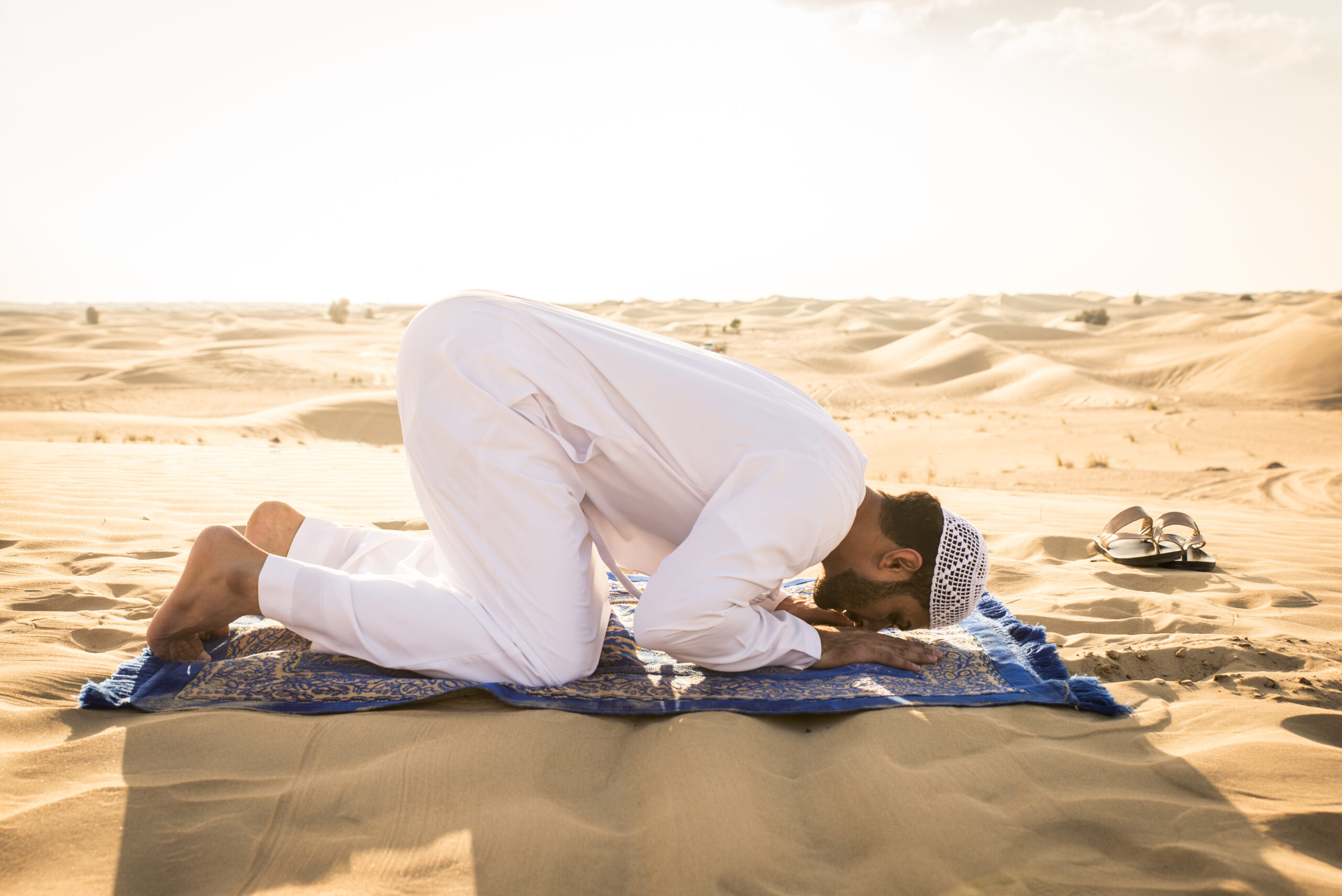Stages of Spirituality in Islam
Stages of Spirituality in Islam
Introduction:
Spirituality in Islam means the relationship with Allah Almighty, the Creator of the whole universe, our material body, and the soul (spirit). In Islam, spiritual connection with the Creator is the base and core of every good deed of believers. It directly affects believers’ state of Imaan (belief), their self-worth, deeds, daily practices, behaviors, and treatment of others. In today’s life, which is based on materialistic approaches and full of hassles, we often neglect our spiritual well-being. This results in depression, existential crisis, anxiety, emptiness, bewilderment, and aimlessness. In this article, I will cover the stages of spirituality in Islam. This will help you transform your life perspective and give you inner peace and satisfaction in the form of building a strong relationship with our most loving and caring Creator of the Universe.
This read is going to help you how to relate with your Creator, remember him at every moment, and connect with him spiritually.
What Does the Quran Say About Spirituality?
Many verses of the Quran talk to the readers about spirituality and invite them to think and ponder about their Creator.
“He wants to help you recognize that you are a being from God and that you are true, good, beautiful, and forever. He wants to help you recognize that you are a being from God and that you are true, good, beautiful, and forever.”
5 Stages of Spirituality in Islam:
For Muslims, spirituality is the satisfaction of their soul, and it is related to following the teachings of Islam and practicing them from the core of their heart as a commandment of Allah Almighty. The highest form of spirituality is attachment to Allah at every time, in all conditions and situations. This highest form of attachment is achieved by following the Islamic law and Sharia that are delivered to us by the beloved, last Prophet of Allah Almighty Hazrat Muhammad ﷺ.
There are stages of spirituality in Islam. Each stage leads to the next stage of spiritual growth. It is like you want to plant a garden. You will go through different stages, from preparing the soil to sowing the seeds. And from watering them to witnessing them grow by protecting them from harsh environmental conditions, weeds, and predators. Then, the final stage comes for flowering and fruiting. Likewise, you have to go through different stages of spiritual growth for spirituality.
Stage#1. Repentance and Purification:
This is the stage when the believer repents of his sins and asks the almighty to forgive his sins. He knows that the Lord is the most gracious and merciful. He shows his nothingness and submission in front of Allah Almighty. He gets rid of arrogance, ego, anger, and greed. This process is slow and steady and is accomplished with hard work and consciousness. Ask Allah at every step to help you get rid of these imperfections. Keep repenting of your sins, this will help in the purification of your soul. And helps in preparing the ground for proceeding to the next stage. Ask for Allah’s refuge from Satan at every stage is accomplished.
Step#2. Nurturing Beautiful Qualities:
When your heart becomes empty from all kinds of greed, jealousy, ego, and arrogance, your heart becomes soft. There is a lot of new space created for nurturing it with beautiful qualities like kindness, forgiveness, and passion for creating ease and comfort for Allah’s creatures. Keep in mind that all of the processes will require a conscious effort and pure intentions.
Step#3 Remembrance of God:
The third stage is the remembrance of Allah Almighty. It is in the form of five times prayers, in the form of remembrance of Allah from the tongue and in the heart. In all the conditions, at work, in free time, in company, in loneliness. You will find peace in this process and will feel very near to you.
Step#4 Experiencing Divine Presence:
Keep remembering him; ultimately, You will find him synchronized with your heartbeat. You will see the divine presence and divine hand in each and everything. Remember that he does not come directly in front of you, but he sends his signs that will make you feel that he is very close to you. Closer than your heartbeat.
Step #5 Obedience:
At this stage, you will find yourself; you are finding peace only in his obedience. You will not want to be a part of any deed that can displease our Lord.
Wrapping up Stages of Spirituality in Islam:
Spirituality is a connection and process that operates at all times. It changes as per your efforts and consciousness. Sometimes, you feel you have a very strong connection to your Creator, to your Lord. At times, when you indulge in the colors of this deceiving word or commit sins, you can feel that it starts to weaken your connection to the Almighty, and your soul starts to become darker and filthier.
But do not worry. You can resume your spiritual journey with mere repentance. He forgives our sins. Keep one thing in mind in your spiritual journey, that it is a constant battle against your sins, against your Nafs. Sometimes, Allah sends some tests in the form of troubles and tribulations. If we face them with courage and patience, this strengthens our spiritual connection to Allah Almighty.
When you are on a spiritual journey you should be ready to encounter great challenges, as noble goals need greater sacrifices. Once we set on the path and the journey begins, progress is assured, steadily ascending us towards Allah. As we climb, our vision expands, and our longing for His presence deepens. Despite the obstacles, our determination to draw closer to Him only grows stronger.
FAQs:
What are the 4 areas of spirituality?
The spirituality and spiritual health of a person can be understood through four key domains.
1. Connection to Oneself:
This is related to the quality of the relationship a person is having with himself in terms of self-awareness, self-image, self-talk, self-acceptance, and personal growth.
2. Connection to Others:
It is concerned about a person’s connection with his family, friends, relatives, and people relevant to their community.
3. Connection to Nature:
Spiritual well-being also has a connection to nature. It includes appreciation for beauty and recognition of our interconnectedness with all living beings
4. Connection to Transcendent:
Lastly, spirituality encompasses a connection to something greater than oneself. And it is Allah Almighty, in the form of higher power, universal energy, or transcendent truth. This area involves seeking meaning, purpose, and guidance beyond the materialistic world and mortal relations of this world.
How to increase spirituality in Islam?
There are several ways to increase spirituality and connection to the Lord in Islam. This includes praying five times a day regularly, reciting, understanding, and reflecting on the message of Allah, the Holy Quran, engaging in the dhikr, practicing self-repentance and self-reflection, helping his creators, performing acts of charity, being in the company of pious people and scholars, engaging in spiritual retreats and maintaining good character.
What are the different types of spirituality in Islam?
Personal devotion, tasawwuf, practicing Islamic ethics and morality, seeking knowledge of the Quran and Hadith, and service to humanity are different types of spirituality in Islam.







